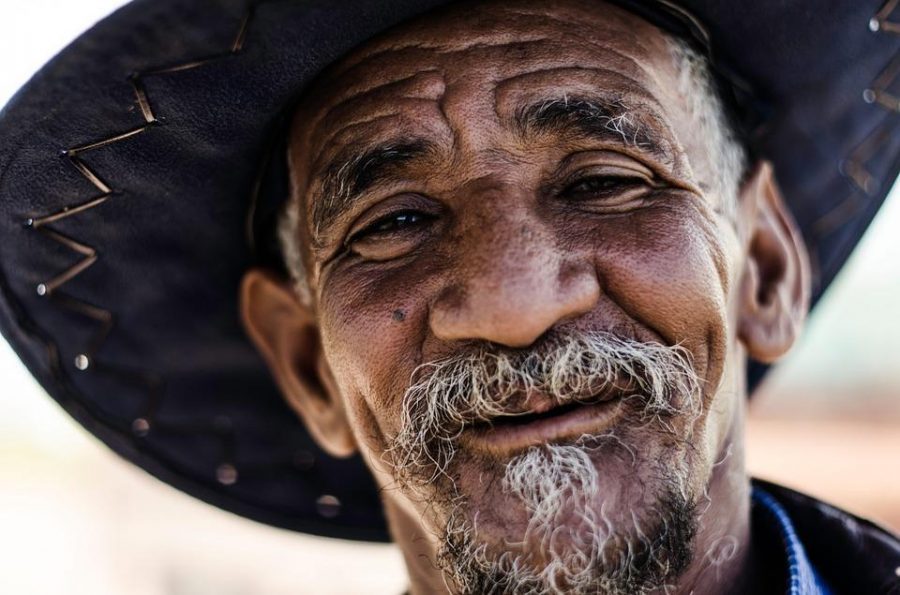Many “centenarians,” (those who’ve reached the 100-year-old milestone) live in pockets across the world where living conditions seem to be prime for living longer and healthier lives. These “Blue Zones” have become a subject of interest in recent years, as researchers have aimed to discover what common characteristics exist across them. By pinpointing commonalities, researchers may be able to prescribe certain sorts of lifestyles or practices that promote healthy living.
Last year when I had the opportunity to attend “Body Worlds” at the Leonardo, an exhibit called “The Cycle of Life” showed the human body in all stages of disarray, disease, health, action and stasis. The eerily uncanny experience of being a body walking through a body exhibit was awe-inspiring, creepy, beautiful and strange. While viewing the under-lit exhibit, surrounded on all sides by collapsible black walls, the distant hum of calm music and an array of posed, plastinated corpses and body parts, I was drawn to a display of exceptionally healthy older people. One portrait showed a man swimming in a lap pool and went on to explain that he was in his 80s and could swim for miles. Other portraits gave the impression that terrifically active elderly people were not only defying age-related bodily restrictions, but were doing so in supreme happiness.
Across the world, a lot of research is being done on the process of aging. In Silicon Valley, a wealthy group of (mostly) tech billionaires have taken it upon themselves to cure themselves of aging — whether this goal is limited to the uber-wealthy remains yet to be seen. What is clear, however, is that many of these billionaires believe indefatigably in the power of science, mainly through gene research, to engineer the proverbial ‘fountain of youth’ sought after so recklessly by human civilization. Whether it be fake organ generation, the use of telomerase therapy to revive out-of-commission cells (which has been shown in mice to reverse the aging process) or other more pharmaceutical means, it seems apparent that this is either a pipe dream or else, for the foreseeable future, an inaccessible remedy to the billions of us who don’t have billions.
A more accessible solution is to look to those Blue Zones — where people naturally live longer lives — for advice about how we might live our own lives. Books, like those written by Blue Zones founder Dan Buettner, promise enlightening new insights on making those “critical everyday choices that correspond with the cutting edge of longevity research.” While Buettner’s earnest “lessons” raise some flags, the research is pretty clear: some communities across the globe are just better at being healthier, and they share some common practices.
To summarize a few of these findings (so you might correspondingly contrast these to your own everyday lifestyle choices), it seems clear we should be doing these things every day: participating in a moderate level of physical activity — not just walking, but incorporating in our daily routine jogging, lifting, cycling, swimming or other physical, heart-rate-increasing practices; eating more vegetables than meat (most Blue Zones see the adamant adoption of plant-based diets); moderate calorie intakes; consistent relaxation; and, seemingly universally, engaging actively in community and fellowship. This last point is often reduced to religious, faith-based gatherings but can be as inclusive as daily talks with friends, participating in a book club, meeting with extended family every so often or being an active participant in one’s community.
It’s unclear which of diet, exercise or community is most important to a long and healthy lifestyle. If you’re to maximize your time on the earth, however, it wouldn’t hurt to try regularly monitoring each of them. While Body Worlds inspired the fear of death in me, I think it unlikely death will be cured by the super-rich. Instead, Blue Zones provide the best keyhole view through which we get a sense of long and healthful living. By acting in accordance with what we know to be good for longevity, we might have the chance to defy the pain of age and even death, if only for a little while.


